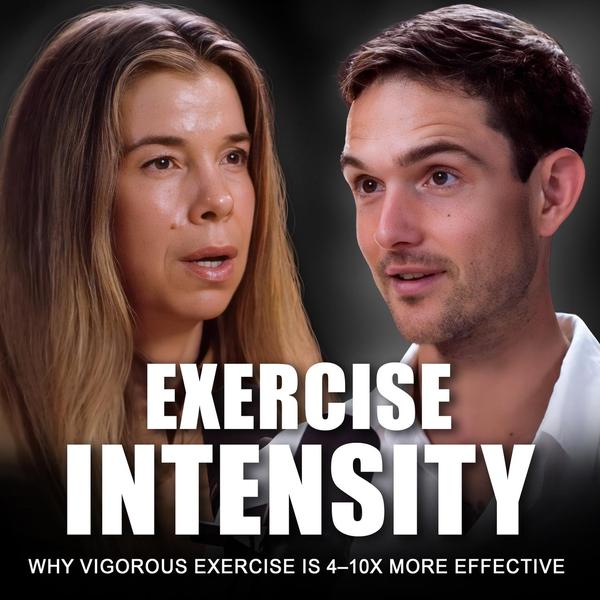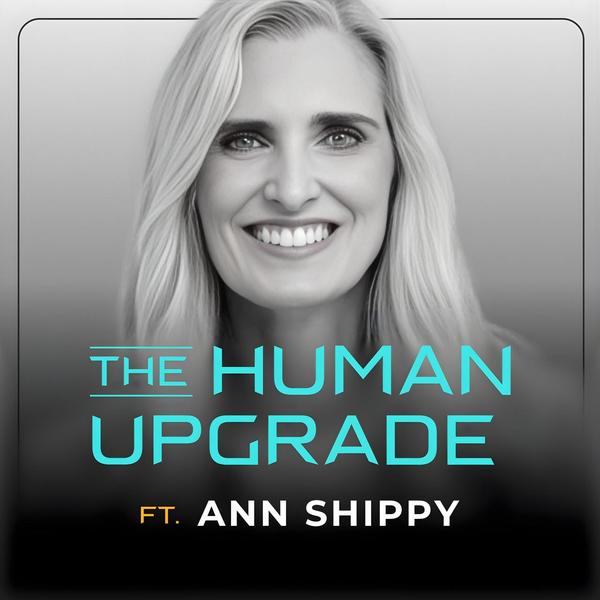#101 Dr. Andy Galpin: The Optimal Diet, Supplement, & Recovery Protocol for Peak Performance
Rhonda Patrick
Apr 22, 2025
Mindsip insights from this episode:
Reduce bedroom CO2 levels to improve sleep quality
High carbon dioxide levels in the bedroom, often above 900 parts per million, can dramatically impair sleep quality and next-day cognitive function.
Monitor nightly respiratory rate for early stress detection
Your nightly respiratory rate is a more sensitive and earlier indicator of physiological stress or illness than heart rate variability (HRV) or resting heart rate.
Clarify metabolic flexibility as efficient fuel usage
The term 'metabolic flexibility' has been hijacked to mean maximizing fat burning, when its true meaning is the ability to efficiently use both fats and carbohydrates as fuel.
Choose whole eggs for superior muscle and strength gains
A study where protein and calories were matched found that consuming whole eggs resulted in greater muscle and strength gains compared to consuming egg whites alone.
Utilize rhodiola to manage stress response during intense exercise
Rhodiola rosea acts as an adaptogen by mitigating the body's stress response to intense exercise, rather than providing a direct stimulant effect like caffeine.
Moderate citrulline intake to avoid intense effects
While both beetroot and citrulline enhance blood flow, citrulline can be so potent that some people find the effect unpleasantly intense.
Boost immunity with high-dose glutamine intake
Taking high doses of glutamine, around 10-20 grams per day, may be an effective strategy for boosting immune function and preventing common illnesses.
Trust your feelings as primary recovery metric
Your subjective feeling of progress and pain is the most important recovery metric, often proving more reliable than data from wearable devices.
Utilize water pressure to enhance recovery
The simple orthostatic pressure from being immersed in water, regardless of temperature, significantly aids recovery by promoting fluid exchange in tissues.
More from
Rhonda Patrick
#108 The Best Type of Exercise for Longevity
#104 Dr. Ben Bikman: How To Reverse Insulin Resistance Through Diet, Exercise, & Sleep
#103 A Deep Dive on Using Coffee For Health & Longevity (Full Guide & Research)
#102 Why Vitamin D Deficiency Accelerates Brain Aging
#100 The Optimal Creatine Protocol for Strength, Brain, and Longevity | Darren Candow, PhD
You also might be interested in
Dr. Casey Means: Eat like THIS to reduce your Risk of Metabolic Disease!
Biohacking Fertility for Men and Women at Any Age
Improve Energy & Longevity by Optimizing Mitochondria | Dr. Martin Picard
Dr. Casey Means: Stop Ignoring Your Health — Do These 5 Free Tests!
The Untold Science Of Vibration Therapy & The “BioDrive” Breakthrough That Regulates Your Mind and Body, With Dr. Mike North


















